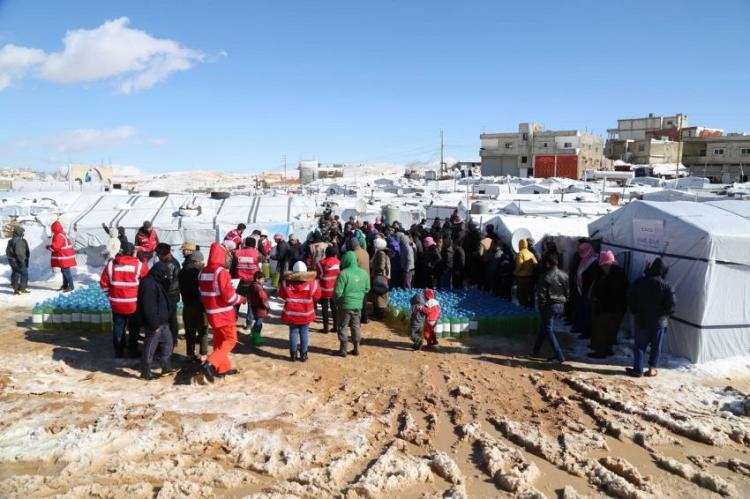Forced deportation or voluntary repatriation.. Syrian refugees in Lebanon
As for human rights condemnation for deporting refugees through legal and illegal crossings, she says that according to Russian Defense Ministry and UNHCR meeting last July, there are about 30.000 Syrian opponents in Lebanon, some of them want to repatriate and others don’t and “we will not deport those who are in danger to Syria.”
The issue of Syrian refugees imposes itself in an accelerated pace for a while, especially on human rights level in the light of the increasing Lebanese formal procedures which, from observers’ point of view, is to put refugees under pressure in order to speed up their repatriation.
One of these procedures was the deportation of 16 Syrian refugees from Beirut International Airport by Lebanese public security on April 26,2019 after they had been deported by Turkish authorities to Lebanon.
This process was announced in a joint statement by 5 human rights organizations such as “Human Rights Watch” and “Legal Diary” confirming that at least 13 people of them expressed their fear of torture and prosecution when they are deported to Syria.
“Every Syrian arrives in Lebanon without meeting conditions of entry and wants to go to Syria because he doesn’t want to stay in the country he resides in, has to sign a pledge of responsibility by choosing to repatriate voluntarily with facilitations provided by general directorate of public security”. Lebanese public security said in its illustrative statement.
Forced deportation or voluntary repatriation
During her speech to North Press, Gayda Franjiyah, a lawyer at “Legal Diary” stressed on the nature of procedures followed with Syrian refugees who are being deported to Beirut airport and don’t want to go back to Syria in fear of their life and freedom.

“Syrian refugees were obliged to deportation by public security in Beirut airport without allowing to defend themselves or look for another solution” Franjiyah confirmed.
She considered the process as “forced deportation” not voluntary repatriation because law doesn’t count on statements obtained during detention or under pressure.
Franjiyah said that deportation procedures didn’t apply on those who accessed through Beirut airport, but those who accessed without passing through public security offices.
Franjiyah pointed to the danger of the decision enunciating for the first time of sending Syrian citizens to Syrian authorities directly where Lebanon has followed since 2012not to deport Syrians.
Franjiyah stated that the background of these procedures based on “wrong considerations of Lebanese authorities because there are no more reasons for Syrian asylum to Lebanon and no fears from Syrian government.
The most serious thing is that these wrong considerations aren’t based on any evidence or objective data on the situation in Syria, especially for young people who are fleeing Military service, political opponents.
Gebran Bassil’s plan
Supreme Council of Defense decision to deport the infiltrators through illegal crossings had been mentioned in the amendments presented by the Foreign Affairs Minister Gebran Bassil to the entry and residence law issued in 1962, which he presented to the parliament in November.

In turn, refugee affairs consultant, Ola Botrus pointed to North Press that the amendments presented by Bassil complete a previous plan made in 2014 based on the two articles about border control and prohibition of individual humanitarian cases entering from 01/01/2015.
Botrus stressed that general trend for the coming days is to put deporting Syrian refugees matter on track pointing out that 74% of Syrian refugees are residing illegally.
She stated that organizing the issue needs to be divided into categories and take back asylum card from the undeserved, specially those who live in areas that become secure, who are going and coming to Syria periodically, and workers in Lebanon.
As for human rights condemnation of deporting refugees through legal and illegal crossings, she says that according to Russian Defense Ministry and UNHCR meeting last July, there are about 30.000 Syrian opponents in Lebanon, some of them want to repatriate and others don’t, and “we will not deport, those who are in danger, to Syria.”
NPA – Beirut

